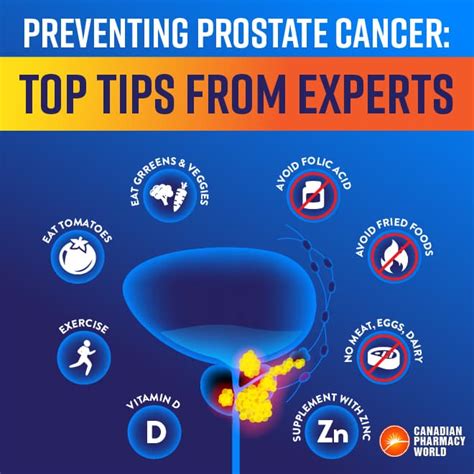How to Avoid Prostate Cancer: A Comprehensive Guide
Prostate cancer is a significant health concern for men, but understanding the risk factors and preventative measures can significantly reduce your chances of developing this disease. This comprehensive guide explores lifestyle choices and screenings that can help you take control of your prostate health.
Understanding Prostate Cancer Risk Factors
Before diving into prevention, it's crucial to understand what increases your risk. Knowing your risk profile allows for more targeted preventative strategies.
Age:
The most significant risk factor is age. The risk increases dramatically after age 50. Men over 65 are at a considerably higher risk.
Family History:
A strong family history of prostate cancer, particularly in close relatives like fathers or brothers, significantly elevates your risk. This suggests a genetic predisposition.
Race and Ethnicity:
African American men have a higher incidence rate and tend to be diagnosed at a younger age and with more aggressive forms of prostate cancer compared to other racial groups.
Diet:
A diet high in red and processed meats has been linked to an increased risk. Conversely, a diet rich in fruits, vegetables, and whole grains is associated with a lower risk.
Obesity:
Maintaining a healthy weight is vital. Obesity is linked to increased levels of certain hormones that may promote prostate cancer growth.
Physical Inactivity:
Regular exercise is crucial for overall health and may play a role in reducing prostate cancer risk.
Preventative Measures: Taking Control of Your Health
While you can't eliminate all risk factors, adopting a proactive approach to your health can significantly reduce your chances of developing prostate cancer.
Maintain a Healthy Diet:
Focus on a diet rich in fruits, vegetables, and whole grains. Limit your consumption of red and processed meats. Consider incorporating foods rich in antioxidants and lycopene (found in tomatoes).
Regular Exercise:
Aim for at least 30 minutes of moderate-intensity exercise most days of the week. This can include brisk walking, swimming, or cycling. Physical activity helps maintain a healthy weight and may offer other protective benefits.
Maintain a Healthy Weight:
Losing even a small amount of weight if you're overweight or obese can make a positive difference. This can be achieved through a combination of diet and exercise.
Limit Alcohol Consumption:
Excessive alcohol consumption is linked to several health problems, including an increased risk of prostate cancer. Moderate your alcohol intake.
Consider Supplements (Consult Your Doctor):
Some studies suggest that certain supplements, such as selenium and vitamin D, may offer some protective effects. However, it's crucial to consult your doctor before taking any supplements, as they can interact with other medications or have potential side effects.
Regular Prostate Exams and PSA Tests:
Discuss with your doctor when to start regular prostate screenings. These typically involve a digital rectal exam (DRE) and a prostate-specific antigen (PSA) test. Early detection is crucial for successful treatment. The frequency of these tests will depend on your individual risk factors and your doctor's recommendations. The PSA test is controversial, and its use should be discussed fully with your physician to ensure it is appropriate for you.
Conclusion: Proactive Steps for a Healthier Future
Prostate cancer prevention involves a multifaceted approach encompassing lifestyle modifications and regular screenings. By embracing a healthy lifestyle and maintaining open communication with your healthcare provider, you can significantly reduce your risk and proactively safeguard your prostate health. Remember that this information is for general knowledge and should not substitute for professional medical advice. Always consult your doctor for personalized guidance.
